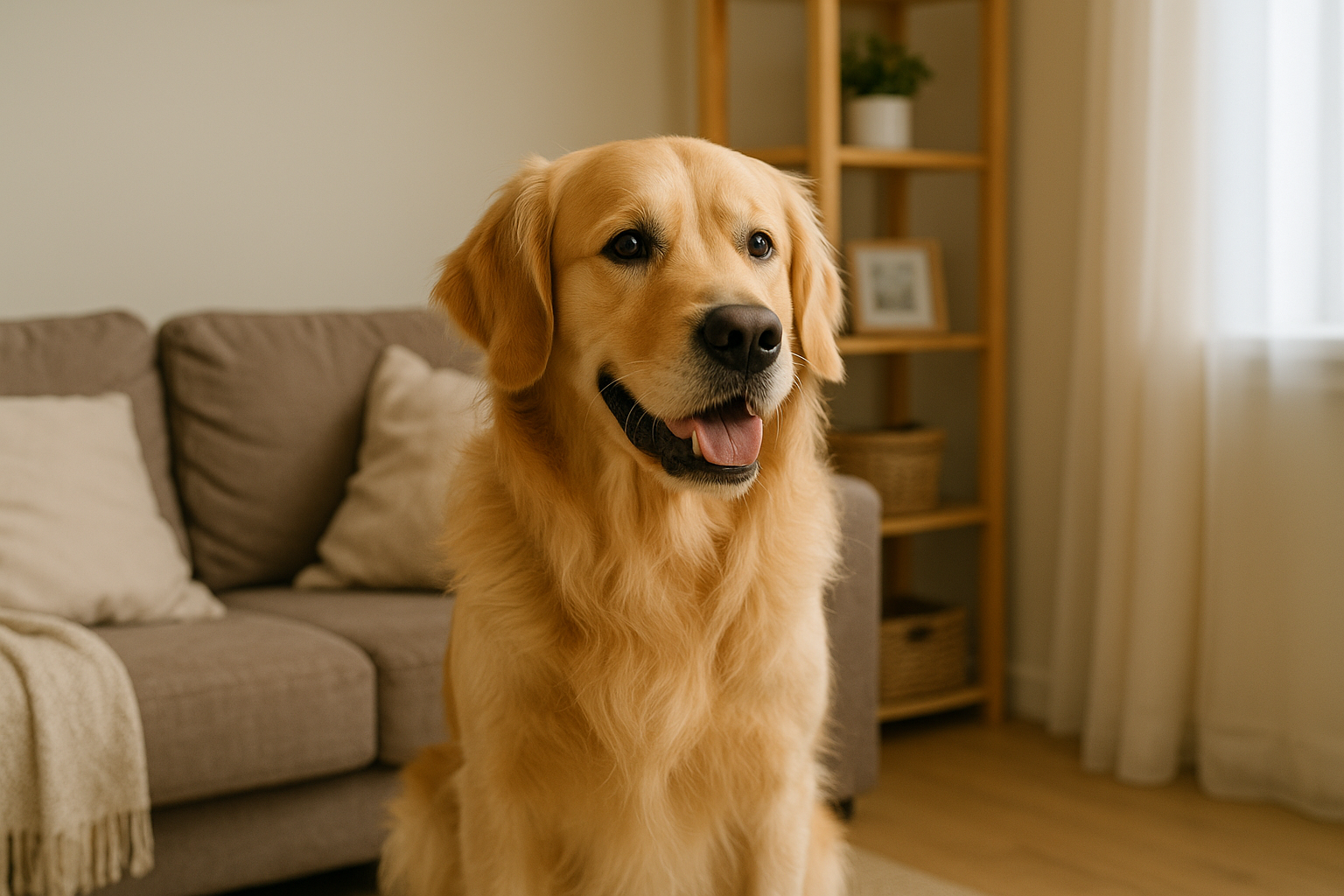Bringing a Golden Retriever into your life means welcoming a loyal, affectionate, and highly intelligent companion. But being a great dog owner involves more than love—it requires knowledge, preparation, and ongoing attention. Whether you’re a new pet parent or simply considering adopting one, this article covers essential insights that every Golden Retriever owner should know for a healthy and happy life together.
Golden Retrievers Are Not Low-Maintenance
Their laid-back and friendly attitude might fool you into thinking Golden Retrievers are easygoing in all aspects—but that’s not the full picture.
Key Considerations:
- They require daily physical and mental stimulation
- Their long coats need frequent grooming
- They thrive on social interaction and do not like being left alone
- Training and consistency are vital, especially when young
Owning a Golden is a commitment of time, energy, and emotion—but the rewards are immense.
Socialization Is Non-Negotiable
Golden Retrievers are naturally friendly, but that doesn’t mean they’re born knowing how to behave around other dogs, people, and children. Socialization is a crucial step in preventing unwanted behaviors like jumping, anxiety, or fearfulness.
How to Socialize Properly:
- Expose them to various people, dogs, and environments as early as possible
- Attend puppy playgroups or obedience classes
- Use positive reinforcement during interactions
- Never punish nervous behavior—redirect and build confidence instead
When socialized properly, a Golden Retriever is one of the most well-adjusted breeds out there.
Goldens Need More Than a Backyard
Some people believe that having a backyard is enough for a dog like a Golden Retriever. The truth? A backyard helps, but it’s not sufficient on its own.
Why Daily Activity Matters:
- It keeps their body strong and joints healthy
- It prevents behavioral issues like barking, chewing, or digging
- It reduces stress and anxiety
- It strengthens your bond through shared activities
Aim for 60 to 90 minutes of exercise per day, including walks, play, or even agility games.
Nutrition Must Be Monitored
Golden Retrievers love food, which makes them easy to train—but also prone to overeating. Obesity can lead to joint issues, heart problems, and decreased lifespan.
Smart Feeding Tips:
- Stick to scheduled feeding times—twice a day is ideal
- Measure food portions based on weight and activity level
- Avoid feeding table scraps and fatty treats
- Invest in high-quality, breed-appropriate dog food
Ask your vet about supplements like omega-3s, glucosamine, or probiotics, especially as your dog ages.
Golden Retrievers Are Prone to Specific Health Issues
Like many purebred dogs, Goldens have a genetic predisposition to certain health conditions. Staying informed and proactive is key.
Common Conditions:
- Hip and elbow dysplasia
- Cancer (especially lymphoma and hemangiosarcoma)
- Ear infections due to floppy ears
- Hypothyroidism
- Allergies and skin conditions
Regular vet visits, annual bloodwork, and early detection make a significant difference in managing health.
Golden Retrievers Love to Work
This breed was originally developed as a working dog—retrieving game during hunts. That drive still exists today, which is why Goldens thrive when they have a job or purpose.
Give Them a “Job”:
- Obedience training
- Search and retrieve games
- Helping with daily tasks (carrying toys, fetching the newspaper)
- Canine sports like dock diving or agility
A stimulated Golden is a well-behaved Golden.
Training Should Be Fun and Consistent
Thanks to their intelligence and eagerness to please, Golden Retrievers respond exceptionally well to training. However, inconsistency can lead to confusion and bad habits.
Training Tips:
- Keep sessions short and frequent (10–15 minutes daily)
- Use positive reinforcement: treats, praise, toys
- Avoid yelling or punishment-based methods
- Teach one command at a time, and don’t rush
- Include family members so the dog listens to everyone
Training is not just about control—it’s about communication and bonding.
Your Dog Needs to Be Part of the Family
Golden Retrievers are emotional and people-oriented. They don’t do well when left alone outside or ignored indoors.
Make Them Feel Included:
- Allow them inside as part of the family unit
- Set up a cozy bed in a shared living space
- Offer regular playtime and affection
- Talk to them—they respond to tone and attention
This is a breed that thrives on love and connection. Treat them like a family member, and they’ll treat you like their whole world.
Keep Up With Grooming and Hygiene
If you’re not brushing your Golden Retriever regularly, you’re going to notice fur on everything—your couch, your clothes, and even your food.
Grooming Checklist:
- Brush coat 3–5 times per week
- Bathe every 6–8 weeks
- Check and clean ears weekly
- Trim nails monthly
- Brush teeth at least 2–3 times per week
Establish a routine early so your Golden learns to enjoy the process.
Final Advice: Be Patient and Stay Involved
Golden Retrievers may be one of the easiest dogs to love, but that doesn’t mean their care is automatic. They need your patience, time, and attention—every day.
Give them the structure they crave, the love they live for, and the stimulation they need. Do that, and you’ll have a devoted best friend for life.

